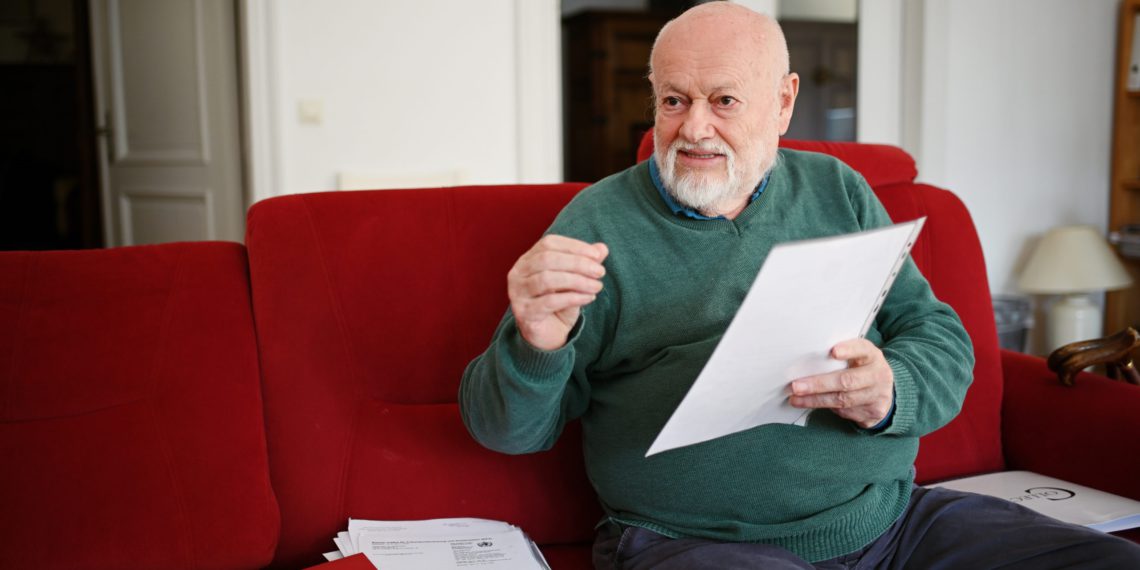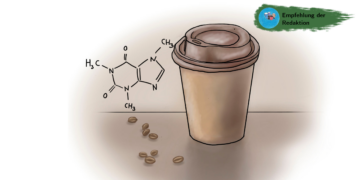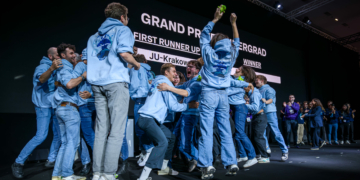Science relies on controversy. Disagreement is part of research, solid consensus is overturned, celebrated researchers enter shady territory. Most of the time, this proceeds more or less smoothly, without all too much of an outcry. Most of the time.
Hans Eysenck was an outstanding psychologist, perhaps the greatest of his generation. He shaped personality research for many years, has been cited more than 100 000 times, as often as hardly anyone else in his profession. However, the British professor with German roots was a dazzling figure, divisive throughout his life, always haunted by scandals. The largest and most intense controversy Eysenck stands for is inextricably linked with yet another figure: Ronald Grossarth-Maticek.
Along with the physician, who has lived in Heidelberg for many years, Eysenck developed a breathtakingly bold theory of personality as a cause of fatal diseases. By their own account, there is a „cancer-prone“ personality type at the one extreme, and a mentally healthy, „autonomous“ type at the other. Depending on the attitude towards one’s life, a person has dramatically high or low chances, respectively, to fall ill with cancer or coronary heart disease. For laypeople, this might sound unbelievable. For many experts, all the more so. Scores of researchers have doubted the results, because they seem to contradict everything that is known about such diseases. Even the tobacco industry, which has a vested interest in everything that relativises the effects of smoking, took a skeptical distance.
Some have been been wary since the beginning. Soon after the first studies, Anthony Pelosi questioned the legitimacy of their research. The case has had a grasp on the psychiatrist and epidemiologist for 30 years. In 2019, he published a devastating review in the Journal of Health Psychology. It only left the question whether Eysenck and his partner in Heidelberg actually accepted people with acutely life-threatening illnesses in their psychotherapeutic study, rather than treat them medically right away. That would have been „grotesquely unethical,“ Pelosi tells us. Another possible explanation awkwardly remains: the investigations did not occur as described. Eysenck manipulated his Heidelberg protégé, who is not very proficient in English, and spread phantastical assertions without his knowledge. The editor of the Journal of Health Psychology, David Marks, tells us upon request that he offered Grossarth-Maticek the opportunity to reply. However, he says, the latter rejected it.
Grossarth-Maticek welcomes us in his tastefully furnished villa in the Neuenheim quarter of Heidelberg. He is almost 80 now, and he joyfully recalls his long research career. Most of that time was spent in Heidelberg. He says that Eysenck respected his protégé’s wish not to join him in London. The climate was full of too much envy and aggression. When famous Eysenck presented the pair’s method on an international stage, he was met with an open mind, so long as he did not mention Grossarth-Maticek, the latter says. Although Eysenck himself was very famous and successful in Britain, his collaboration with Grossarth-Maticek was supposed „to be forced open“: some demanded that Eysenck dissociate himself from Grossarth-Maticek. But Eysenck remained unperturbed, claiming the former was better than all his critics. It was provocative, but the two of them made an „unshakeable team.“ Eysenck died in 1997. Shortly afterwards, his widow had all of his documents destroyed. Grossarth-Maticek now aims to transport the pair’s work into the broader public. Furthermore, he offered courses for years in which he expanded on that work. He also cooperated with various institutes of Heidelberg University in the past decades, although he was never employed there himself.
Following Pelosi’s article, King’s College London, Eysenck’s former employer, set up an investigatory committee. The panel declared 26 articles „unsafe“ – not safe for science, let alone clinical practice.
In order to conduct research on diseases, one usually needs to be trained in epidemiology. Grossarth-Maticek concedes that he is not an epidemiologist. However, he sees this as an advantage rather than a flaw. That line of research, he says, is merely concerned with „mono-causal“ studies; it only wants to consider one factor at a time by holding all other ones constant. This is no true causal investigation, Grossarth-Maticek says. On the contrary, researchers should „include all causal factors into an interactive system and treat as many relevant factors as possible.“ Grossarth-Maticek and his collaborators respect that, he says, and therefore always score much better results than epidemiologists. Pelosi tells us that this has been the standard for a long time. Marks, the editor, informs us that the principle of multiple causation „adds nothing new to science.“ Nevertheless, Grossarth-Maticek insists that he includes many more factors than all other researchers.
Another one of Pelosi’s points is simply discarded by Grossarth-Maticek. If personality has such a profuse influence on cancer risk and mortality, Pelosi argues, there is hardly any space left for other factors, such as smoking. This is mere speculation but not an argument, Grossarth-Maticek counters. Pelosi, in turn, points out how strong the factor of personality is supposed to have been in the studies in question – sometimes, it went into triple digits. In such cases, he says, it is mathematically very difficult for other influences to play a role. „This is not speculation. It is simple arithmetics,“ Pelosi says.
The issue of smoking is particularly charged because Hans Eysenck received money from the tobacco industry between 1977 and 1989. Eysenck himself obtained 800 000 Pounds, his institute another two million. Grossarth-Maticek tells us that his own research was only supported by the tobacco industry when all the data had already been gathered. However, there is no way to verify this claim.
Grossarth-Maticek candidly says what he thinks about his critics. Again and again, he calls them „denunciators.“ Currently, his lawyer is preparing charges against Pelosi and Marks, but also against the Guardian, which published a critical report about the case in November, without having it followed up by a written reply. Guardian editor Sarah Boseley tells us that Grossarth-Maticek missed the deadline. However, a podcast released later on by the newspaper did include his statement. In it, he already announces charges against Pelosi. He confirms this point in conversation with us.
As much as he is concerned about his reputation, he seems to care little about what critics do with his research. Manfred Amelang, a professor emeritus for psychology at Heidelberg University, has long been known as a skeptic of his work. At one point, Grossarth-Maticek tells us, Amelang requested original data from him to carry out his own analyses. A student assistant of Grossarth-Maticek provided him with information on several hundred cases – but with disease patterns reversed, so that Amelang would publish with false data. In this way, for example, a woman with breast cancer would then be listed as a patient with myocardial infarction instead, Grossarth-Maticek frankly tells us. He himself was appalled and would never have allowed that, but what should he have done? He could not have written about it in the British Medical Journal, for instance. Therefore, this issue has been unresolved until today.
When we ask Amelang about it, he contradicts this account almost completely. He only received data on „six or seven persons,“ far too few to ground a study on it. We can’t determine which side is right.
We were able to ascertain one thing, however. For most of the time, it was not known whether the otherwise reticent Grossarth-Maticek is a physician. Now, he explains to us that he received a doctoral degree in medicine from the University of Belgrade. The latter did grant him the title of „Dr. med. sci.,“ which the relevant regional authority in Germany (the Regierungspräsidium Stuttgart) acknowledged as „Dr. med.“. We received permission to see and publish the certificate from Belgrade, in addition to other material (see Guidepost). Grossarth-Maticek provides us with many documents of established scientists who praise and recommend him.
Some of his qualifications, on the other hand, are unclear. Grossarth-Maticek never studied psychology. His mentor Eysenck trained him in psychological behavioral therapy for twelve years, and furthermore wrote a letter of recommendation for his services to be acknowledged by German medical insurance companies. Eysenck was known as a seminal academic, but not as a practicing therapist. According to Pelosi, therefore, he was not able to train Grossarth-Maticek.
Pelosi and Marks, the critics of Eysenck and Grossarth-Maticek, say there is a need to take action now. Robust regulatory bodies and ombudspersons for cases of possible scientific misconduct are needed to avoid something like the cancer personality scandal in the future. It is not about single persons or institutions, Marks writes, but about the integrity of science.
by Lukas Jung and Hannah Steckelberg
Guidepost
Ronald Grossarth-Maticek permitted us to publish some documents from his property. You can see them here. For the German version of this article, see here.
Lukas Jung studiert Philosophie und Politikwissenschaft. Er schreibt seit SoSe 2018 für den ruprecht – vor allem über Wissenschaft, Investigatives und Stadtentwicklung. Seit SoSe 2019 leitet er das Ressort Wissenschaft. ruprecht-Urgestein.
Hannah Steckelberg studiert Osteuropastudien und Germanistik im Kulturvergleich. Seit 2016 ist sie beim ruprecht – erst nur als Fotografin, seit 2017 auch als Autorin. Am liebsten schreibt sie Reportagen aller Art sowie ihre Kolumne “Hochschule bleibt stabil”. 2019/20 leitete sie zwei Semester lang das Ressort Seite 1-3, inzwischen lebt sie in Wien.
Nicolaus Niebylski studiert Biowissenschaften. Beim ruprecht ist er seit dem Sommersemester 2017 tätig – meist als Fotograf. Er bevorzugt Reportagefotografie und schreibt über Entwicklungen in Gesellschaft, Kunst und Technik. Seit November 2022 leitet er das Ressort Heidelberg. Zuvor war er, beginnend 2019, für die Ressorts Studentisches Leben, PR & Social Media und die Letzte zuständig, die Satireseite des ruprecht.










